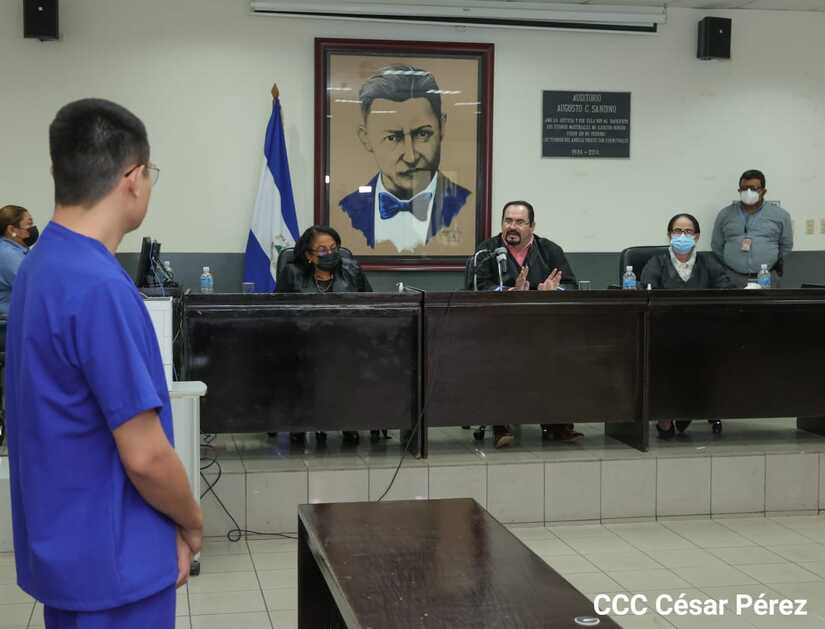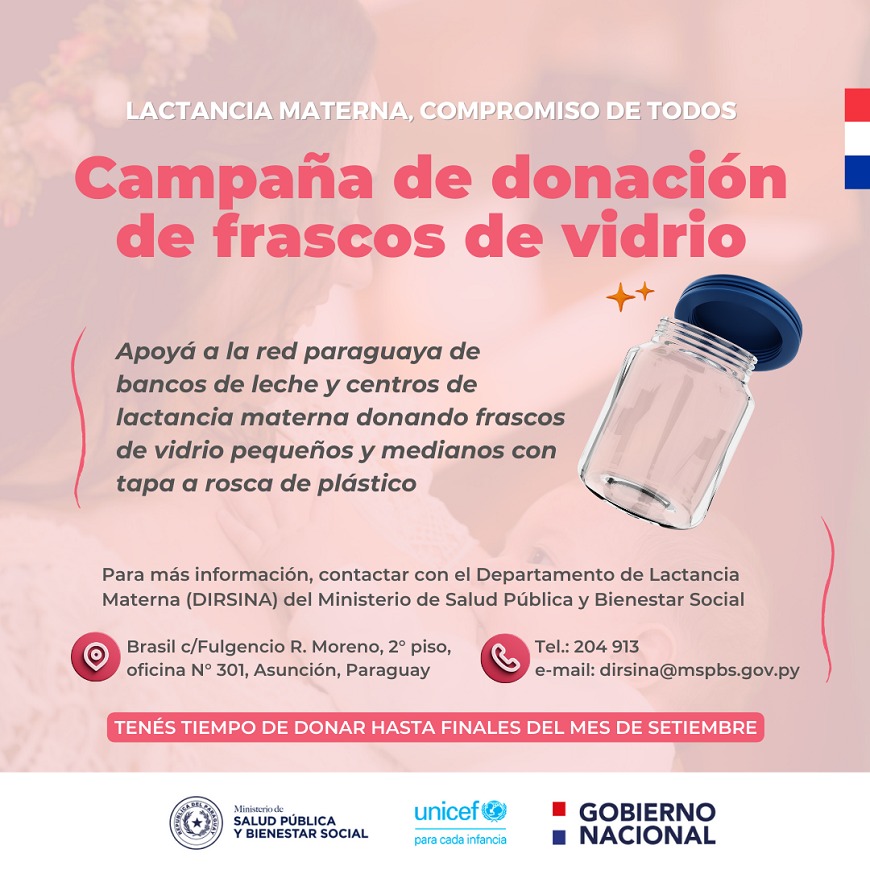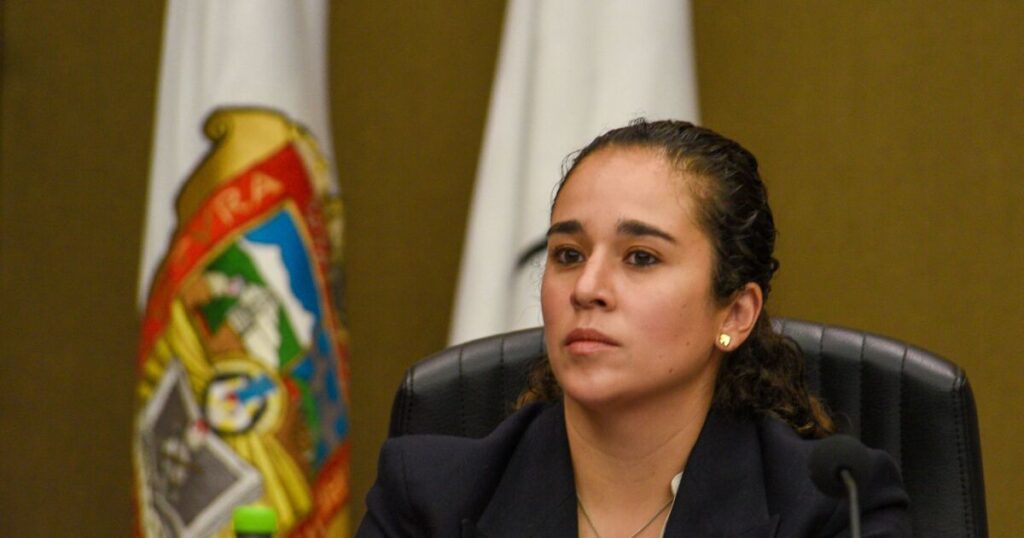Ortega justice invented the legal figure of “informative hearing” to exhibit this Tuesday ten political prisoners, a day after relatives of prisoners of conscience denounced that they suffered from malnutrition and extreme weight loss. Lawyers and human rights defenders warned that the Nicaraguan Criminal Procedure Code (CPP) does not establish in any of its articles the holding of “informative hearings”, so their convening and holding is “illegal” and pursues “political” purposes.
Political prisoners were brought to these “audiences”: Walter Gómez, Marcos Fletes, Pedro Vásquez, Miguel Mora, Juan Sebastián Chamorro, Medardo Mairena, Max Jerez, Lesther Alemán, José Antonio Pereza and Michael Healy. The opponents, arrested between May and November 2021, were sentenced to between seven and thirteen years in prison for the alleged crimes of “conspiracy” or “money laundering”.
It is “a strategy of repression”, which shows “cruel and degrading treatment” against prisoners of conscience, and which also seeks to “discredit” the complaint of their relatives, who have warned of the risk in which their lives are in prison, incommunicado, without access to timely medical attention and sufficient food, considered Vilma Núñez, president of the Nicaraguan Center for Human Rights (Cenidh).
He explained that the CPP only contemplates the hearings: preliminary, initial, special, preparatory trial, trial, sentencing, and protection of constitutional guarantees, but not the “informative hearing”, so “all the actions of the regime are illegal”, and represent a “Continuation of the judicial farce that has been the trials”.
On July 2, the Ortega regime also presented photographs of the political prisoner and former presidential candidate, Felix Maradiaga, when he was taken to the Managua courts for a supposed hearing to ratify his sentence by the TAM, one day after his wife Berta Valle demanded that he be allowed to see him after 389 days in jail and isolation.
“Judges cannot be inventing procedural activities. They only have the power to carry out the procedural acts indicated in the Code. What these judges are incurring individually is the commission of crimes, which violate the guarantees of due process to the detriment of the defendants and make them criminals in their duties, who commit crimes against the administration of justice”, stressed Núñez.
“They can commit the crime of prevarication for acting against express law,” warned the defender.
Defense attorney Henry Salatiel López agrees with Núñez that there is no legal basis to justify the impromptu hearings and “they obey more to a political strategy of the Ortega regime” —to respond to the different campaigns demanding the freedom of political prisoners and denouncing the lack of protection of their rights.
Magistrate without competition
After more than a year of confinement and hermetic political trials, the media affiliated with the regime presented photographs and videos of the ten political prisoners who were taken to the Managua courts to the “informative hearings”, led by Judge Octavio Ernesto Rothschuh. , president of Chamber One of the Court of Appeals of Managua (TAM).
According to defense attorneys, the TAM no longer has the power to hold hearings, since it passed sentences in most of the cases of political prisoners in El Chipote. Its function, at this time, “is to verify that the appeals filed by the defenses meet the legal requirements to be admitted and take the case to the Supreme Court of Justice,” explained a defense attorney, who asked to omit his name. For security.
The official media indicated that Rothschuh informed the political prisoners about the status of the different judicial appeals presented by their lawyers. However, the magistrate did not summon the defense attorneys.
“The call is illegal because the lawyer was not there, that hearing is illegal because it does not exist,” said a defense attorney.
CONFIDENTIAL consulted with several defense attorneys for political prisoners in El Chipote and they assured that most of the appeals were admitted by the TAM and are awaiting a response to grievances from the Public Ministry. Once that step is completed, they must transfer the case to the Supreme Court of Justice, which will issue a resolution.
This is the last instance where a Nicaraguan can go to demand justice, prior to international courts.
















